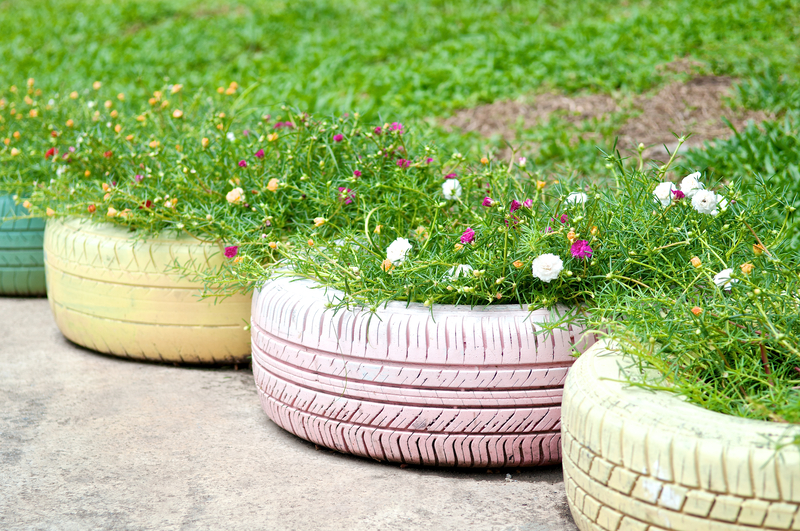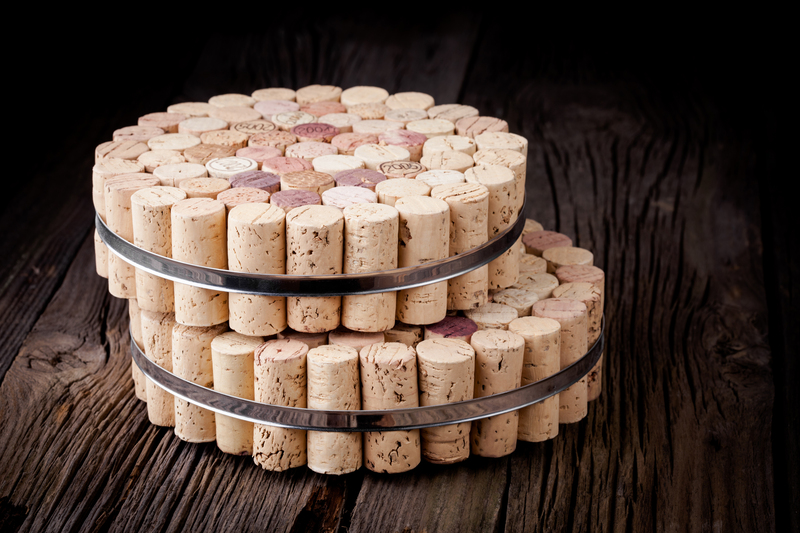Teaching Kids to Care for the Earth with Recycling
In our ever-evolving world, sustainability and environmental stewardship are more important than ever. By teaching children the importance of recycling and taking care of the planet, we not only instill lifelong habits but also ensure a brighter, cleaner future for generations to come. This comprehensive guide explores practical and engaging ways to teach kids to care for the Earth through recycling, offering tips, activities, and resources to make eco-education meaningful and fun.

Why Teaching Kids about Recycling is Important
Children are naturally curious and open to new ideas. By introducing eco-friendly practices such as recycling early on, we can shape their attitudes and behaviors toward the environment. Teaching kids to care for the earth with recycling helps them understand that every action they take has an impact on the world around them. Not only does this create responsible citizens, but it also encourages critical thinking and problem-solving skills.
Key Reasons to Teach Kids Recycling
- Environmental Awareness: Kids learn the effects of waste and pollution on nature, animals, and humans.
- Responsibility: Children take ownership of their environment and learn to make positive contributions.
- Habit Formation: Early education encourages eco-friendly habits that last a lifetime.
- Community Involvement: Kids who recycle inspire families and peers to do the same.
- Resource Preservation: Understanding recycling teaches kids the value of natural resources and the importance of conserving them.
Simple Ways to Introduce Recycling to Children
If you want to teach kids about recycling in a way that sticks, start with simple, age-appropriate activities. The aim is to make learning about recycling fun, practical, and part of everyday life.
Start at Home
- Label Recycling Bins: Use bright colors and pictures to clearly label bins for paper, plastics, glass, and metal.
- Lead by Example: Show your kids how to rinse containers, break down cardboard, and sort recyclables correctly.
- Recycling Chores: Assign recycling tasks as part of the weekly responsibilities and celebrate successes together.
- Reduce & Reuse: Ask kids to think about how to reuse items before recycling or throwing them away.
Leverage Stories and Media
- Read Books: There are many engaging children's books focused on recycling and environmental care. Examples include "The Adventures of a Plastic Bottle" and "Michael Recycle."
- Watch Documentaries & Cartoons: Shows like "Octonauts" or movies like "Wall-E" gently introduce caring for earth through recycling.
- Interactive Apps & Games: Download eco-friendly apps that teach recycling through quizzes and puzzles.
Turning Recycling into a Learning Adventure
Kids learn best when they're actively involved. Transform recycling into a creative and engaging adventure that will make a lasting impression.
Creative Recycling Projects
- Crafts from Recyclables: Build bird feeders from plastic bottles, robots from old boxes, or plant pots from yogurt containers.
- Art Competitions: Challenge children to create art from only recycled items. Award points for creativity, usefulness, or environmental impact.
- DIY Science Experiments: Demonstrate how recycling works by melting and remolding crayons, or making homemade paper.
Recycle Field Trips and Community Activities
- Visit a Recycling Center: Let kids see firsthand where their recycling goes and how materials are processed.
- Park and Beach Cleanups: Participate in local cleanup drives; explain why removing plastic and rubbish benefits animals and humans alike.
- Community Recycling Challenges: Organize neighborhood competitions to see who can collect the most recyclables in a month.
Teaching the Science Behind Recycling
Understanding the 'why' behind recycling helps reinforce its importance. Teaching children the science and impact of proper waste management can foster deeper appreciation and inspire real-world problem-solving.
Basic Recycling Facts for Children
- Materials Breakdown: Paper, glass, metal, and certain plastics can be recycled. Food, electronics, and hazardous waste require special handling.
- Decomposition Rates: Explain how a plastic bottle can take up to 450 years to break down, but recycling it creates new bottles without using new resources.
- Resource Conservation: Recycling one aluminum can saves enough energy to power a TV for three hours.
- Pollution Reduction: When we recycle, we produce fewer greenhouse gases and help clean up air, water, and land.
Visual Demonstrations
- Decomposition Jar: Place a banana peel, a plastic wrapper, and a piece of paper in jars of soil. Observe and track what happens over time.
- Sort the Trash Game: Use real-life sorting activities with actual household garbage (clean!) to reinforce how to separate recyclables from trash.
Building Lifelong Eco-Friendly Habits
Making recycling for kids an everyday routine encourages the development of strong, sustainable habits.
Everyday Recycling Habits
- Waste-Free Lunches: Pack food in reusable containers and use cloth napkins instead of paper. Encourage your kids to bring home and recycle what can't be reused.
- Clothing Drives: Teach children to donate clothes or repurpose textiles instead of discarding them.
- Green Gifts: Choose recycled-material gifts or wrap presents in newspaper or reusable bags.
- Composting: Start a simple compost bin for food scraps and garden waste, and use the compost to fertilize household plants or gardens.
How to Make Recycling Appealing and Fun
Kids are enthusiastic about what excites them! Making recycling appealing is key to engaging their interest and sparking ongoing commitment.
Tips to Inspire Kids to Recycle
- Make it a Game: Challenge your kids to see who can sort recyclables fastest or create the best upcycled art piece.
- Reward Systems: Set up a rewards chart--stars for every recycling chore completed or for teaching friends about recycling.
- Storytelling: Share stories about how recycling has made communities cleaner and wildlife healthier.
- Involve Their Creativity: Let kids decorate recycling bins or invent their own recycling-related superhero.
Overcoming Recycling Challenges at Home
Recycling as a family can come with obstacles--confusion about what is recyclable, inconsistent collection schedules, or lack of interest. Here are practical solutions for families teaching children to care for the earth through recycling:
- Clear Instructions: Use visual guides and posters to show what goes where.
- Designated Recycling Area: Set up a convenient, accessible spot for all recyclables.
- Learn Together: Research local recycling rules and updates as a family, turning it into a learning adventure.
- Celebrate Progress: Mark milestones--like filling the compost bin or reducing trash output--for positive reinforcement.
Useful Recycling Resources for Parents and Teachers
Websites and Apps
Recommended Books
- "What a Waste: Trash, Recycling, and Protecting our Planet" by Jess French
- "Here Comes the Garbage Barge!" by Jonah Winter
- "The Lorax" by Dr. Seuss
Educational Videos
- Sesame Street: "Recycling is Fun!"
- Kidz Bop: "Reduce, Reuse, Recycle" song
- SciShow Kids: "What Really Happens When You Recycle?"

Empowering Children to Create a Greener Future
When we teach kids to take care of the Earth with recycling, we're empowering them to make impactful choices, now and in years to come. With creativity, conversations, and real-world action, children can become environmental champions--one recycled bottle, can, or paper at a time.
Remember: Every small effort counts. By starting early and making recycling a core family value, we can inspire a ripple effect of environmental care that reaches far beyond our homes. Let's nurture a generation that loves the Earth and takes action to protect it.
Frequently Asked Questions about Teaching Kids Recycling
-
What age can children start learning about recycling?
Children can understand the basics of recycling as young as two or three. Use pictures and hands-on activities to demonstrate what goes in each bin. -
How do I explain why recycling is important?
Use simple language: "Recycling helps us use less from the earth and keeps trash out of nature. It makes the world a cleaner and safer place for everyone." -
What if my local area does not support all kinds of recycling?
Focus on what is possible--paper, cardboard, or specific plastics--and teach upcycling and reduction as alternatives. Research local drop-off points for special items. -
How can schools support environmental learning?
Schools can provide recycling bins, host green projects, lead community cleanups, and include environmental science in the curriculum.
Conclusion: Building a Sustainable Tomorrow Together
In summary, teaching children to care for the earth through recycling is a vital step toward building a more sustainable future. With patience, creativity, and ongoing encouragement, parents and teachers can instill important environmental values in kids. Remember, every recycled can, every creative re-use, and every conversation about the planet plants a seed for a cleaner, greener world.
Let's work together--at home, in schools, and in our communities--to nurture responsible, eco-conscious citizens. The planet's future is in our hands--and in the hands of our children.